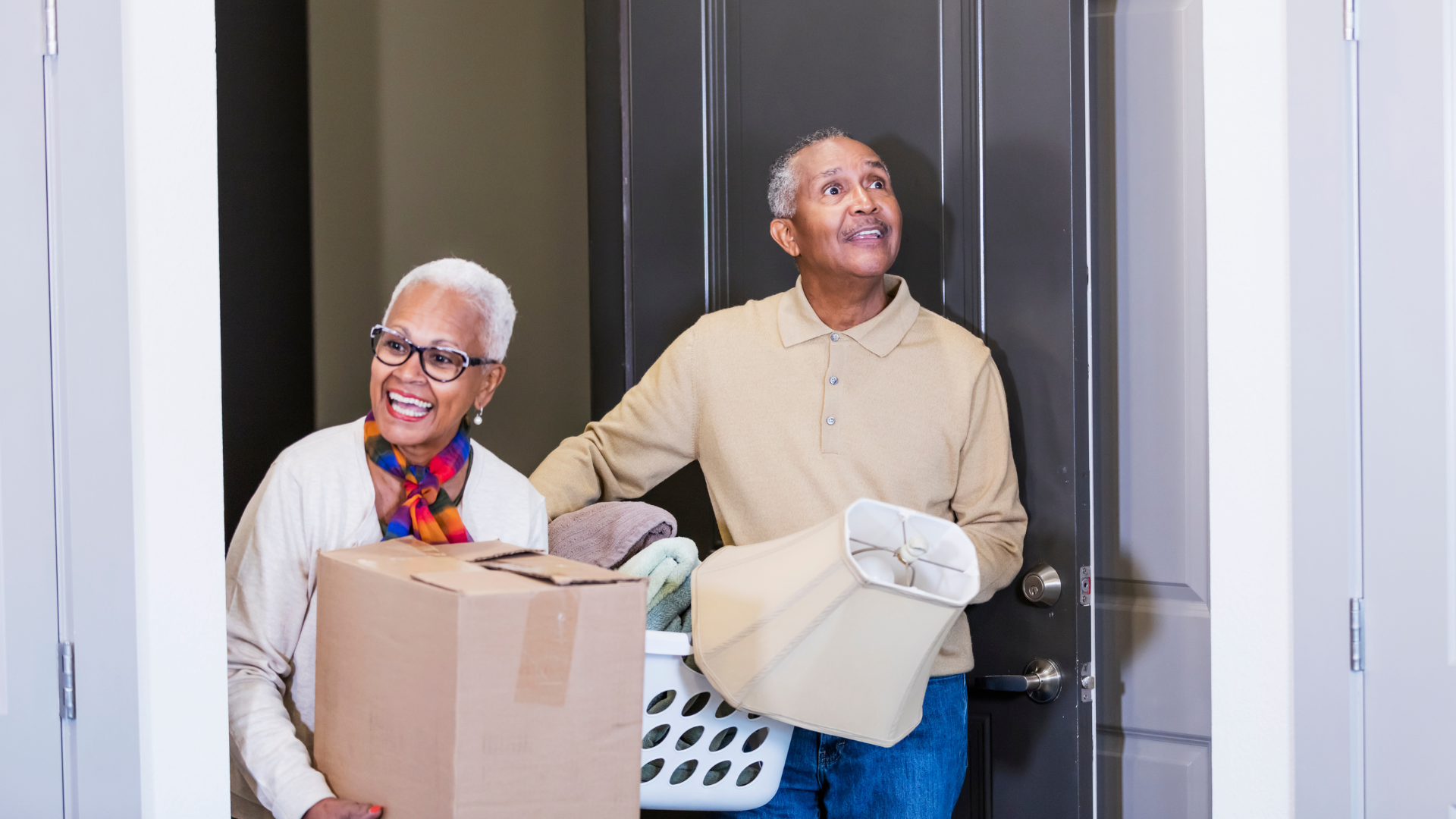The Essential Guide to Moving with Seniors: Tips and Tricks for a Successful Move

No matter if you're helping a loved one move or are a senior moving yourself, there are a few key considerations to keep in mind to make the process as easy and stress-free as possible.
-
Start planning early: The earlier you start planning your move, the better. This will give you plenty of time to declutter, pack, and arrange for any necessary services. If you're moving a loved one, it's important to involve them in the planning process as much as possible to ensure that their needs and preferences are taken into account.
-
Consider hiring professional movers: While it can be tempting to try and save money by handling the move yourself, it's often worth it to hire professional movers. They have the experience, equipment, and expertise to safely and efficiently handle the move, which can be especially helpful if you're moving a senior with mobility issues.
-
Make a list of all necessary items: Before you start packing, make a list of all the items you'll need to take with you. This will help you stay organized and ensure that you don't forget anything important. Make sure to pack a bag with essentials like medications, toiletries, and a change of clothes that you'll need on the first few days in your new home.
-
Pack a "survival kit": A survival kit is a small bag or box filled with items that will be helpful during the first few days in your new home. This might include things like snacks, bottled water, a flashlight, and basic cleaning supplies. Having these items on hand can make the transition to your new home feel less overwhelming.
-
Label boxes clearly: As you pack, be sure to label each box with a detailed list of its contents. This will make it easier to find items when you're unpacking and can help prevent items from getting lost in the move.
-
Arrange for transportation: If you're moving a senior, it's important to arrange for transportation to and from their new home. This might involve hiring a professional moving company that offers transportation services, or it might mean coordinating with friends and family to provide transportation.
-
Set up utilities and services in advance: To make the transition to your new home as seamless as possible, it's a good idea to set up utilities and services in advance. This might include things like electricity, gas, water, internet, and cable. You should also consider setting up any necessary medical equipment and services, such as home healthcare or home delivery of medications.
-
Get familiar with the new neighborhood: If you're moving to a new area, it's a good idea to take some time to explore your new neighborhood before the move. This will give you a chance to familiarize yourself with the layout, find nearby amenities, and get to know your new neighbors.
-
Set up a support system: Moving can be an isolating experience, especially for seniors who may be leaving behind a familiar community. It's important to set up a support system in your new home, whether that means reaching out to neighbors, joining local social groups, or arranging for regular check-ins with friends and family.
-
Take care of yourself: Finally, remember to take care of yourself during the moving process. This might mean taking breaks to rest, seeking help when you need it, and making time for self-care.
Moving with seniors can be a challenging process, but with some careful planning and a supportive team, it's possible to make the transition as smooth and stress-free as possible. Whether you're a senior moving yourself or are helping a loved one move, the key is to be organized, patient, and prepared.
One important aspect to consider when moving with seniors is their living situation. If you're moving a senior into a new home, it's important to make sure the space is safe, accessible, and comfortable. This might involve making modifications to the home, such as installing handrails in the bathroom or adding ramps to make it easier to navigate. It's also a good idea to declutter the home to make it easier for seniors to move around and access their belongings.
If you're helping a senior move into a retirement community or assisted living facility, it's important to do your research and choose a location that meets their needs and preferences. Consider factors such as the proximity to medical facilities, the availability of social and recreational activities, and the quality of the staff and facilities. It's also a good idea to tour the facility in advance to get a sense of the layout and amenities.
Another important aspect to consider when moving with seniors is their personal belongings. If you're moving a senior into a smaller space, it may be necessary to downsize their possessions. This can be a difficult process, but it's important to be patient and understanding as you help your loved one sort through their belongings. Consider setting aside items with sentimental value or those that are necessary for daily living, and consider donating or selling items that are no longer needed.
Finally, be sure to communicate with your loved one throughout the moving process. This will help ensure that their needs and preferences are taken into account and can help prevent misunderstandings and stress.
In conclusion, moving with seniors can be a challenging process, but with careful planning and a supportive team, it's possible to make the transition as smooth and stress-free as possible. Whether you're a senior moving yourself or are helping a loved one move, the key is to be organized, patient, and prepared. By considering factors such as living situation, personal belongings, and communication, you can help make the move a success.
Find peace of mind with Caddy Moving, a reliable labor-only moving company for your next relocation!
